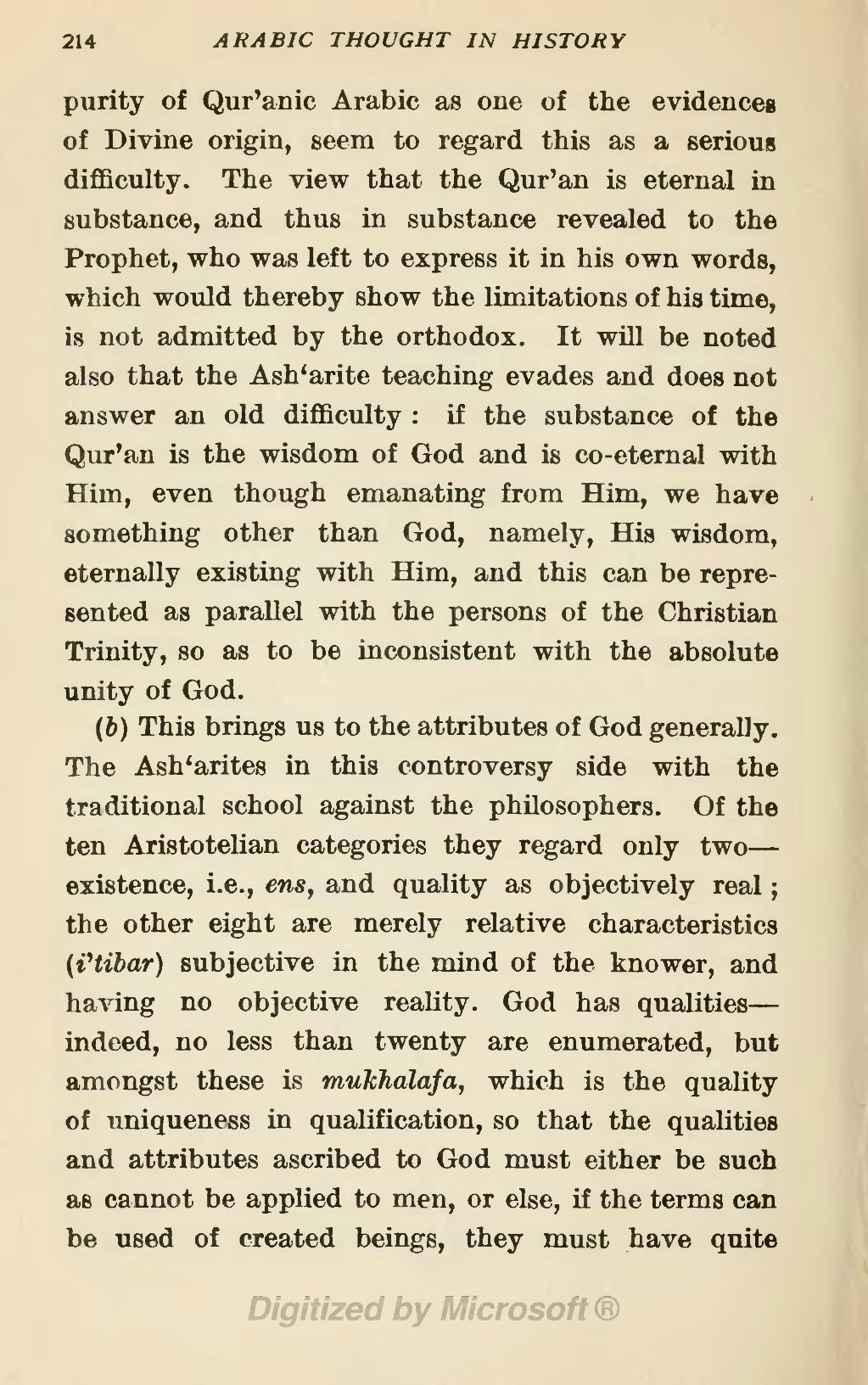purity of Qur'anic Arabic as one of the evidences of Divine origin, seem to regard this as a serious difficulty. The view that the Qur'an is eternal in substance, and thus in substance revealed to the Prophet, who was left to express it in his own words, which would thereby show the limitations of his time, is not admitted by the orthodox. It will be noted also that the Ash'arite teaching evades and does not answer an old difficulty: if the substance of the Qur'an is the wisdom of God and is co-eternal with Him, even though emanating from Him, we have something other than God, namely, His wisdom, eternally existing with Him, and this can be represented as parallel with the persons of the Christian Trinity, so as to be inconsistent with the absolute unity of God.
(b) This brings us to the attributes of God generally. The Ash'arites in this controversy side with the traditional school against the philosophers. Of the ten Aristotelian categories they regard only two—existence, i.e., ens, and quality as objectively real; the other eight are merely relative characteristics (i'tibar) subjective in the mind of the knower, and having no objective reality. God has qualities—indeed, no less than twenty are enumerated, but amongst these is mukhalafa, which is the quality of uniqueness in qualification, so that the qualities and attributes ascribed to God must either be such as cannot be applied to men, or else, if the terms can be used of created beings, they must have quite
